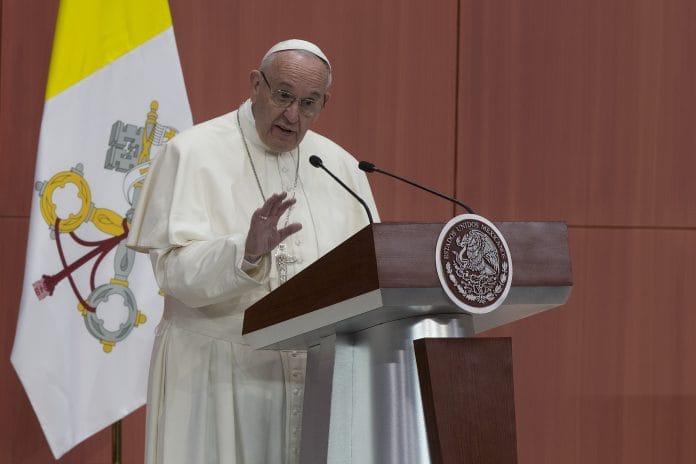New Delhi: The pleasures of a well-cooked meal and loving sexual intercourse are “divine” and have fallen victim to the “overzealousness” of the Church in the past, said Pope Francis, the head of the Catholic Church, in a book of interviews.
The book TerraFutura, published Wednesday, explores the Pope’s vision of integral ecology or the bond between humans and the natural world, in a series of interviews.
In the book, the Pope, who is the spiritual head of over 1.5 billion Catholics across the world, told Petrini, “Pleasure arrives directly from God, it is neither Catholic, nor Christian, nor anything else, it is simply divine.”
“The Church has condemned inhuman, brutish, vulgar pleasure, but has on the other hand always accepted human, simple, moral pleasure,” he said, adding that there was no place for “overzealous morality” that denies pleasure.
He further admitted that this sort of an idea was propagated by the Church in the past but noted that whoever believed so had wrongly interpreted the Christian message.
Also read: Mecca to Vatican — COVID-19 proves when human beings are in peril, gods flee first
‘Sexual pleasure comes from God’
According to the Pope, “The pleasure of eating and sexual pleasure come from God.”
“The pleasure of eating is there to keep you healthy by eating, just like sexual pleasure is there to make love more beautiful and guarantee the perpetuation of the species,” he added.
To further reiterate his point, the Pope talked about a 1987 Danish movie called ‘Babette’s Feast’.
Set in the late 19th Century, the movie is about a lottery-winning chef who invites a group of ultra-puritan Protestant worshippers to a sumptuous banquet.
The film is “a hymn to Christian charity, to love,” said the Pope.
Conversations on environmental and social injustice
The book TerraFutura, written by Italian writer and gourmet Carlo Petrini, focuses on the Pope’s thoughts on environmental and social injustice. He conversed with Petrini on a wide range of topics aimed at preserving the planet.
Petrini is the founder of the global ‘slow food’ movement which gained momentum in the 1980s. The movement fosters local cuisine and culture, while counteracting the rise of fast food.
The book also looks at three specific moments in modern history — the 2018 earthquake in central Italy, the opening of the Synod of Bishops on the Amazon in 2019 and the Covid-19 pandemic in 2020.
Also read: These are the 15 countries that have ‘zero’ coronavirus cases







Appears to be so. Better late than never.
Are christians taking a leaf of the Hindu play book of Dharma, Artha, Kama and Moksha?